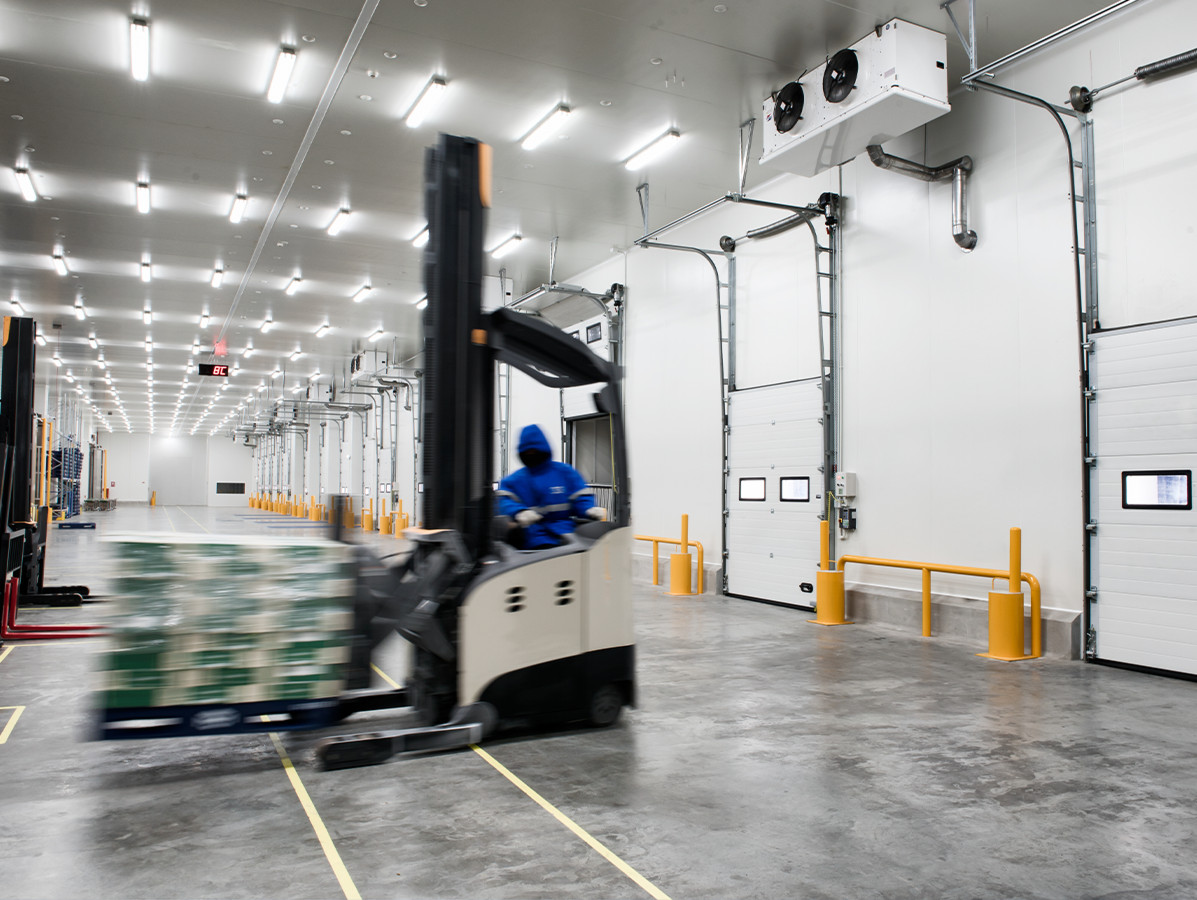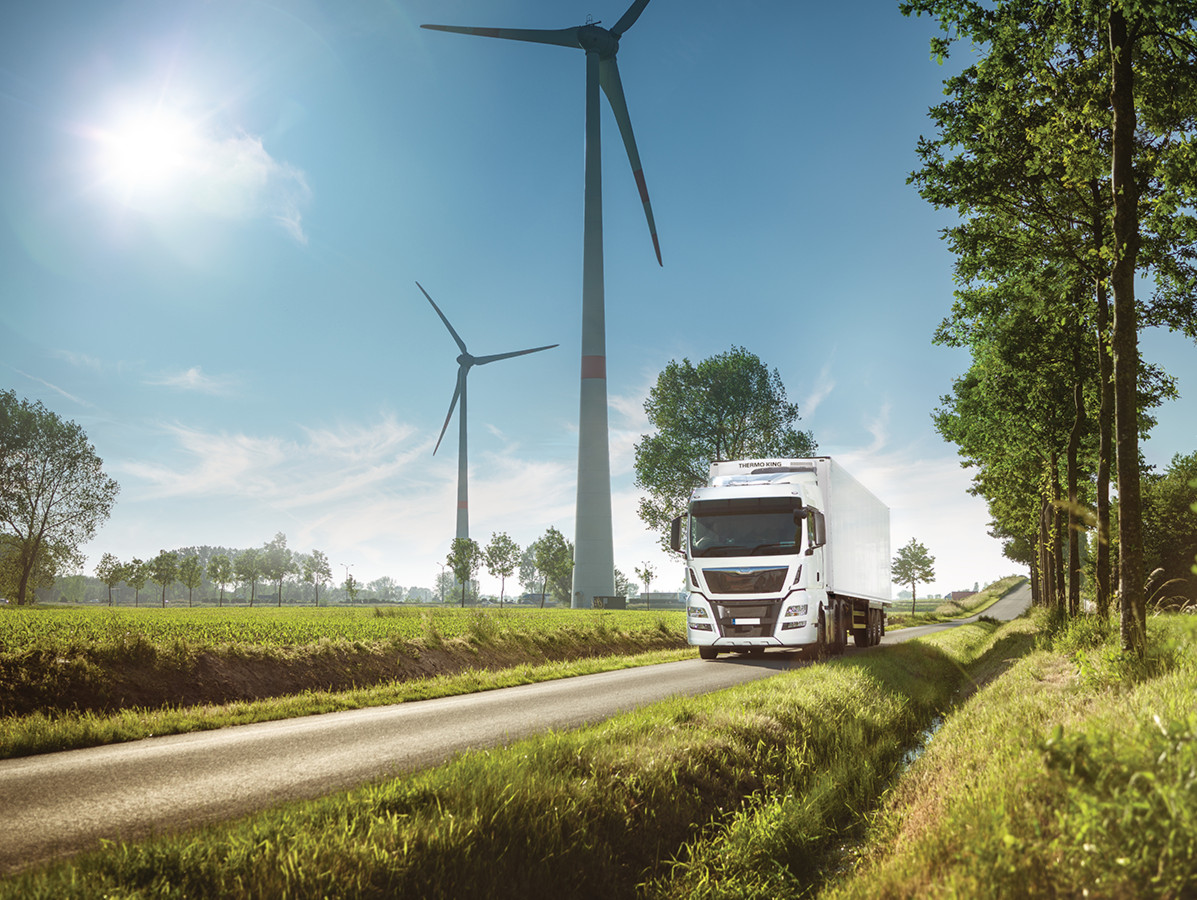
With all the attention paid to the storage and transport of corona vaccines, the cold chain is once again in the spotlight. The food industry has known for decades that respecting the cold chain is crucial for monitoring the quality and food safety of fresh products. What are the main trends and developments?
The corona crisis is not hurting the cold storage industry. Due to the closure of the catering industry and export restrictions, Dutch cold-storage warehouses were completely full last year; results even peaked, according to Rabobank. And demand remained high, because many businesses wanted to safeguard their storage capacity as a precaution against the next wave of viruses. For this year, the bank expects a 10% growth in turnover for storage companies. Corona also accelerated the digitalisation of society and thus has a major impact on the food chain. From the moment we were hardly allowed to receive visitors and were able to travel less, we have been meeting each other virtually and buying online. More and more meals and groceries are delivered to our homes. The delivery of groceries even grew by almost 50% by 2020 (FSIN, 2020). Many of those groceries must be stored and transported in cold storage.
Climate change and the related international, national and local agreements are the main drivers for innovation in the sector. "The demand for more sustainable solutions, such as hybrid and electric refrigeration and freezer systems aimed at reducing fuel costs and CO2 emissions is growing enormously," says Colin Ouwerling, Business Development Manager VP Truck at Thermo King Transport Refrigeration. "Emissions regulations in urban areas are forcing companies to do this. Distribution hubs will be set up on the outskirts of large cities and zero-emission zones will be introduced in the 30 largest cities in the Netherlands as of 2025. For the 'last mile', smaller vehicles powered by electricity or hydrogen will be used. Our refrigeration and freezer units have already been adapted to this."
"The focus on solutions that are less harmful to the environment is something we have been seeing for a while, of course," continues Jan Vliet van Zante, director of Van Kempen Koudetechniek. " As of 2015 chemical refrigerants (Freon) have been phased out. Since 1 October 2000, chlorofluorocarbons (CFCs) may no longer be sold in the European Union, and as of January 2021 they may no longer be used in existing installations. The complete transition to natural refrigerants has led to the biggest technological change in the field of refrigeration and freezing in recent years. Large cooling and freezing systems have always been equipped with the natural refrigerant ammonia (NH3), which is also the best solution from an energy point of view. For the cooling of residential spaces, one increasingly sees installations with the combination of NH3 and CO2 as refrigerant. In particular, medium-sized to (increasingly) large systems work with just CO2 as a refrigerant. These systems, in turn, are highly suitable for recovering heat, for example to heat water for cleaning purposes."
"The reduction target for 2030 is hefty; 1 gigaton of CO2," says Colin. "Together with our parent company, we are sticking to it. On the one hand, we do this with sustainable innovations such as electrification and a choice of alternative fuels to power our cooling solutions, and on the other hand with a no-waste policy in the factories where the machines are produced."

However, it is not only legislation and regulations on sustainability that drive change. The demand for transparency, the ability to continuously monitor quality, guaranteeing food safety and cost reduction play at least as big a role. Colin: "For example, we see a greater demand for multi-temperature solutions; separate temperatures in one trolley. Data-driven maintenance for both machines and the fleet ensures minimum downtime and contributes to a longer service life. Clients are increasingly focusing on quality with IFS certification. This requires up-to-date data. Data connectivity is available on all our refrigeration solutions, so that information (such as temperature, alarm codes, usage time and location) is visible to the driver, planner and financial department. Remote control is also possible; for example, changing the temperature and switching the system on and off.
Jan also recognises this trend in 'his' part of the chain: "The design of control systems is becoming the distinguishing factor. By setting up that design for remote management and monitoring as much as possible, we can relieve customers of all their worries. The system gives advance warning of possible malfunctions. This message is then sent to the installer, who immediately takes measures to prevent the malfunction. Electrical engineering and automation are therefore becoming increasingly complex. Think of DC motors, modbus communication links, electronic control units with PLC and PC connections.
Because of all these relatively new techniques in refrigeration technology, versions and designs of systems change very frequently. "A challenge in itself," says Jan. "Meanwhile, we are dealing with natural refrigerants and all sorts of additional risks and concerns. This new knowledge must be continuously taught to the technicians so that they remain up-to-date and can work safely. That's why we offer our technicians the opportunity to develop and receive further training, via training programmes provided by various institutions and via our own VK Academy."

For the near future, Jan expects a more erratic character in the availability of power in combination with the price of energy. "Refrigeration and freezer systems are already being designed to cope with this. The control systems of these installations have become increasingly advanced over the years. In addition to optimal energy performance, the use of cheap electricity, cold buffering, track & trace and data storage are becoming important arguments for choosing a particular supplier. In my opinion, however, the biggest challenge for the future will be the huge shortage of technical staff to build and maintain the cooling systems. That shortage is already there and will only increase."
Colin: "A major challenge for smaller companies in particular is also to be able to make the extremely large investments needed to meet all future requirements. We have total solutions in the area of commercial vehicles and trailers, as well as partnerships with truck manufacturers for high-capacity fully electric refrigeration solutions. What we have noticed is that many companies first look at the vehicle they want and only then decide which refrigeration solution to install. We prefer to look at the needs first: what is being transported and what requirements must be met? What are the plans for the future, what is the budget and the long-term investment requirement? On the basis of a comprehensive inventory, we propose the most optimal solution. The focus is on preserving and monitoring the quality of the freight. Exactly what food refrigeration and freezer technology is all about in the end.
Main photo: ©TMLsPhotoG/depositphotos.com, Photo forklift: kokliang/depositphotos.com, Beeld truck: ThermoKing
Source: Vakblad Voedingsindustrie 2021